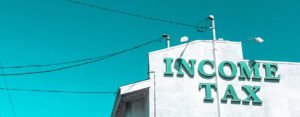For Florida’s businesses: If you do not read past this sentence (and hopefully you will), ASAP (meaning IMMEDIATELY) contact your bank and ask whether your company is eligible for a Paycheck Protection Program Loan, its parameters, the loan terms, and the circumstances under which the loan can be forgivable.
For the past weeks this series has discussed the Coronavirus/COVID-19 pandemic, its implications for Florida’s individuals, families, and businesses, and certain early responsive initiatives and relief programs. For a recap please look at previous weeks’ blog articles: Week 1 and Week 2 and particularly.
This past week an additional program inside the CARES Act benefiting both small businesses and their employees, the Paycheck Protection Program (PPP), went into effect. Similar to last week regarding the federal $2 trillion Coronavirus Aid, Relief, and Economic Security Act (the ‘CARES Act’) and Florida’s Small Business Emergency Bridge Loan Program, it will be most efficient – and accurate – to quote directly from a qualified information source. In this case the U.S. Chamber of Commerce, which is taking a national leadership role in promoting small business’ taking appropriate advantage of the PPP, is that reliable source.
The U.S. Chamber describes the basic elements of the PPP as follows:
The Coronavirus Aid, Relief, and Economic Security (CARES) Act allocated $350 billion to help small businesses keep workers employed amid the pandemic and economic downturn. Known as the Paycheck Protection Program (PPP), the initiative provides 100% federally guaranteed loans to small businesses.
Importantly, these loans may be forgiven if borrowers maintain their payrolls during the crisis or restore their payrolls afterward.
The administration has released initial guidelines; they are available at www.treasury.gov. The U.S. Chamber of Commerce has issued this guide to help small businesses and self-employed individuals check eligibility and prepare to file for a loan.
Small businesses and sole proprietors can begin applying on April 3. Independent contractors and self-employed individuals can apply beginning on April 10.
{Note the critical dates!} To see the Chamber’s outline from which this description is derived, connect to. 1 It is well worth drilling into that short-and-sweet document to determine eligibility for the PPP (for both for-profit non-profit entities), the qualifications lenders will review, borrowing limits, and the loan forgiveness criteria.
It should be noted that the U.S. Small Business Administration is the administrator of the PPP. Here is the SBA’s landing page for the PPP.
To consult with an experienced business law lawyer today, call 855-780-9986
As mentioned at the ‘top’ of this piece, moving forward rapidly matters. Big time! It is suggested that businesses contact their bankers IMMEDIATELY. (Particularly those financial institutions which are SBA 7(a) lenders.) And also to work with their attorneys and accountants to gather the information and documents needed to submit a PPP application, to administer a loan if received, and to utilize loan proceeds to benefit from the loan’s forgiveness aspect.
Now…If one wants to preview the PPP application even before contacting their banker (and – again – do not delay – place the call now).
More information to come as the situation unfolds over time.
For information about Bogin, Munns & Munns’ own response to Coronavirus readiness.
”Importantly, these loans may be forgiven if borrowers maintain their payrolls during the crisis or restore their payrolls afterward.
=====================
1 And also see https://www.uschamber.com/report/covid-19-emergency-loans-small-business-guide.
– For more information, call Philip N. Kabler of the Gainesville, FL office of Bogin, Munns & Munns at 352.614.3958, where he practices in the areas of business, banking, real estate, and equine law. He has taught business and real estate law courses at the University of Florida Warrington College of Business Administration and Levin College of Law and is the President-Elect of the Eighth Judicial Circuit Bar Association.
NOTICE: The article above is not intended to serve as legal advice, and you should not rely on it as such. It is offered only as general information. You should consult with a duly licensed attorney regarding your Florida legal matter, as every situation is unique. Please know that merely reading this article, subscribing to this blog, or otherwise contacting Bogin, Munns & Munns does not establish an attorney-client relationship with our firm. Should you seek legal representation from Bogin, Munns & Munns, any such representation must first be agreed to by the firm and confirmed in a written agreement.
Call or text 855-780-9986 or submit our Consultation Request form today




